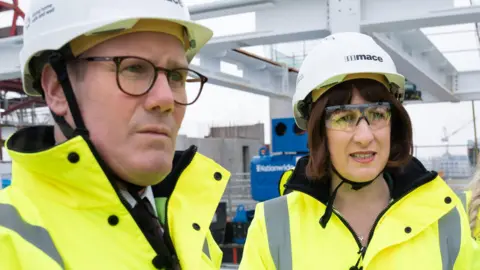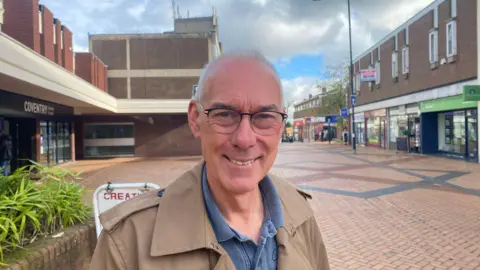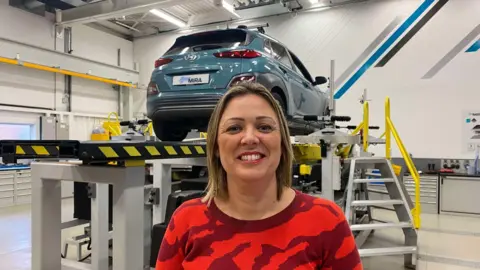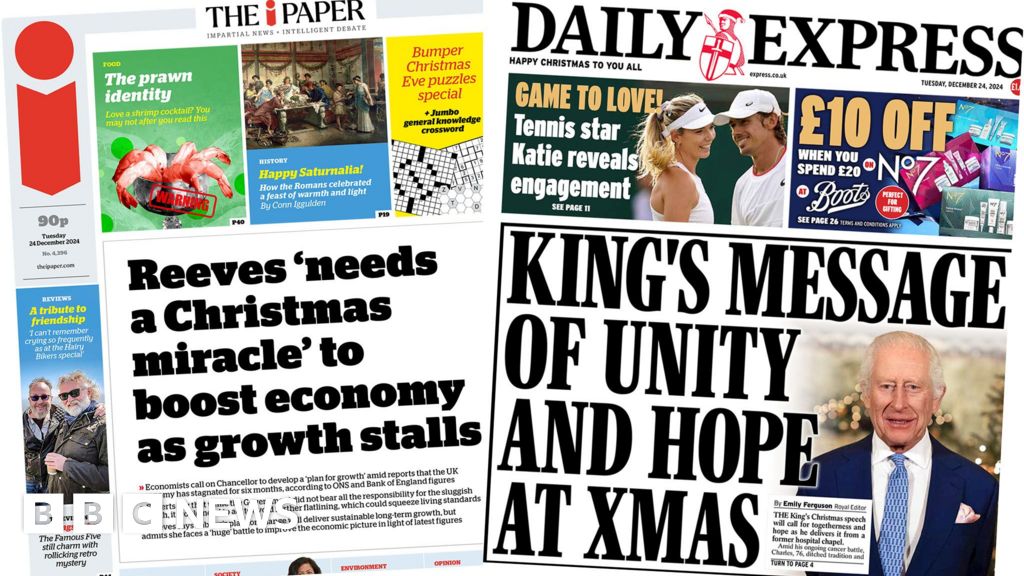
 PA
PA
Prime Minister Sir Keir Starmer says he wants levelling up to be more than a slogan
Some of the most deprived areas of the West Midlands fear they could lose millions in levelling-up money promised by the previous Conservative government.
The Labour government has not confirmed whether councils will receive money from levelling-up funds worth billions of pounds.
This includes £1.5bn for 75 "overlooked" towns across the country offered £20m each to invest in regeneration projects.
One government source said all levelling-up spending was under review and described some of the commitments as "unfunded".
Chancellor Rachel Reeves is expected to clarify what's happening with funds in the Budget, following a spending review.
Speaking just before the election, the Conservatives said they had allocated a total of £15bn since 2019 on levelling up - their big idea to spread prosperity more evenly across the country.
But since winning the general election, Labour has dropped the name levelling up from the title of a government department and accused the Conservatives of leaving a £22bn "black hole" in the public finances.
The chancellor is reportedly looking to find £40bn through tax rises and spending cuts in the budget, while increasing investments in Labour's economic priorities.
Last month, Prime Minister Sir Keir Starmer told the BBC levelling up had to be more than a slogan.
He said: "We have to go through a review to see what is deliverable. What I'm not going to do is make false promises, to pretend to people that money is there when it isn’t."
This year, a report by a committee of MPs found that as of December 2023, the government had only given out £3.7bn of levelling-up cash out of a promised £10.7bn.
Of that £3.7bn, councils have only been able to spend £1.24bn.
Talk of the towns
Six councils in the West Midlands were due to be handed £120m in total under a long-term plan.
All six councils - Dudley, Sandwell, Birmingham, Wolverhampton, Walsall and Nuneaton and Bedworth - told the BBC they they had not started any projects, but some had received a bit of money to set up town boards.
The town boards were supposed to be panels of prominent local figures who would decide what to do with the funding.


Tory councillor Damon Brown says the £20m grant was a vote of confidence in Bedworth
One of the towns expecting £20m was Bedworth.
A former coal-mining town in Warwickshire, Bedworth is using other levelling-up money for market renovations and to build a new state-of-the-art leisure centre.
"Funded by HM government," a banner says at the building site.
"Bedworth is improving with the levelling-up funds and it was much needed," said Nicky King, the Labour councillor in charge of the town's regeneration.
In an unusual display of unity, Labour and Tory councillors are urging the government to cough up the £20m.
"It represents the biggest investment in the future of this town that it has seen in decades," said Tory councillor Damon Brown.
"The £20m was a vote of confidence in the future of our town and to take that away would be to knock the aspiration of the town."


Sarah Windrum of MIRA Technology Park says well-paid jobs have a role in town regeneration
There were high expectations of what the money could do for Bedworth.
The chairman of Bedworth United FC, who's put thousands of pounds of his own money into the club, said he would welcome more investment in grassroots football.
And down the road, the Civic Hall venue reopened in the summer after securing funding, and could benefit from an further injection of cash.
But the Labour government wants to move away from levelling up and towards giving more power and money to local leaders, particularly metro mayors.
Attracting more business investment is also crucial to Labour's economic plans.
A 15-minute drive from Bedworth, MIRA Technology Park was named in Labour’s industrial strategy as an example of a UK strength.
The automotive research hub has a "pivotal role in regeneration", says Sarah Windrum, the future mobility cluster leader at MIRA.
“We're creating high-value employment here. That means disposable income for local people."
At the moment, Labour seems more interested in high-tech businesses than high-street revival.
As the government counts the cost of levelling up, towns like Bedworth could be let down if the chancellor feels the sums don't add up.
 (1).png)
 2 months ago
9
2 months ago
9













